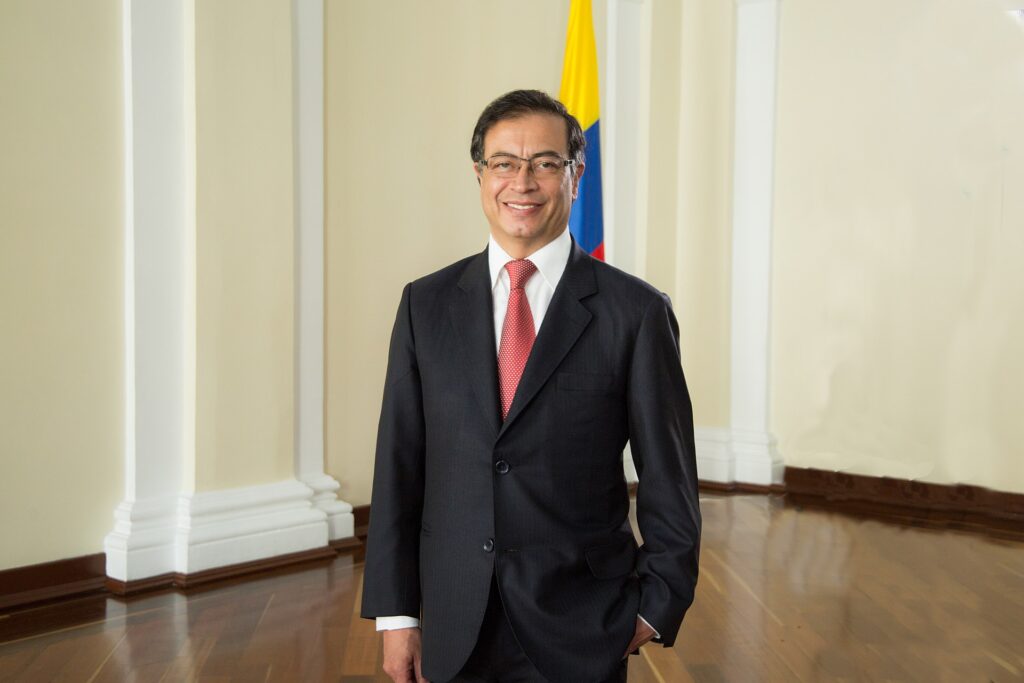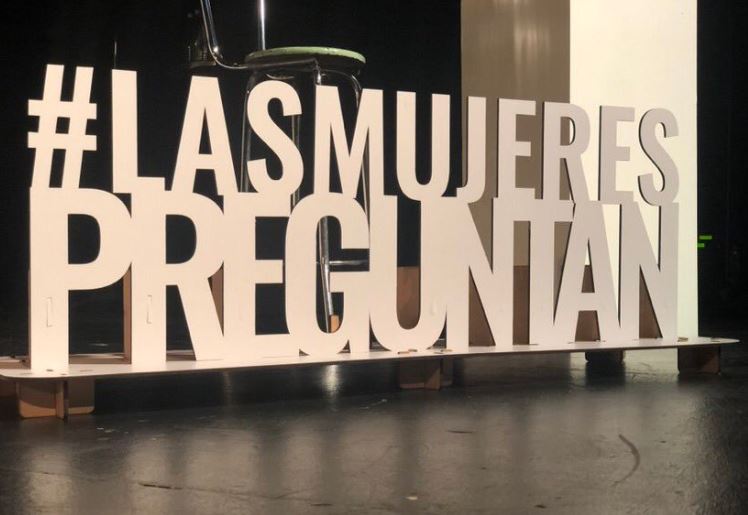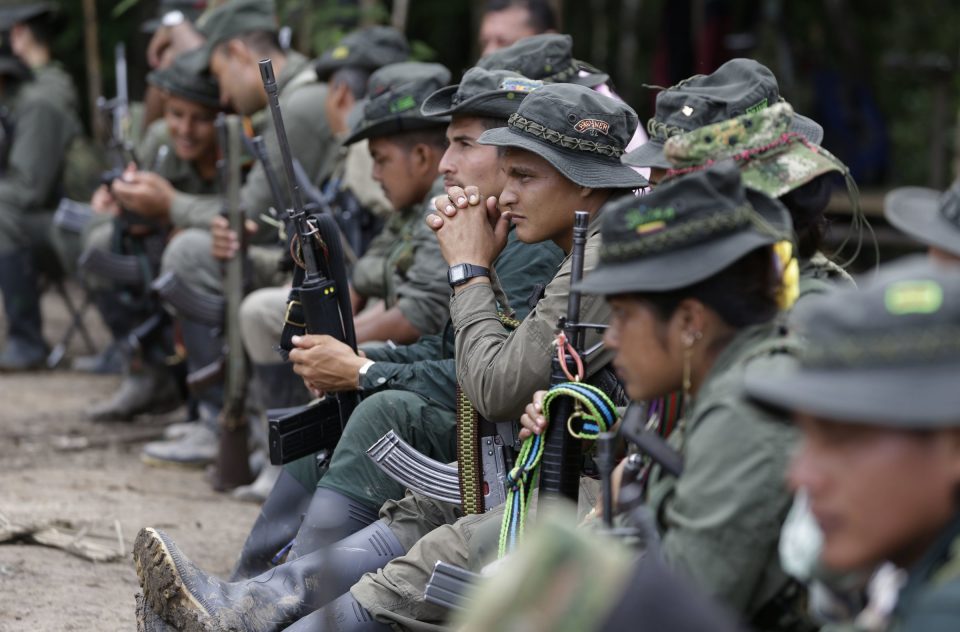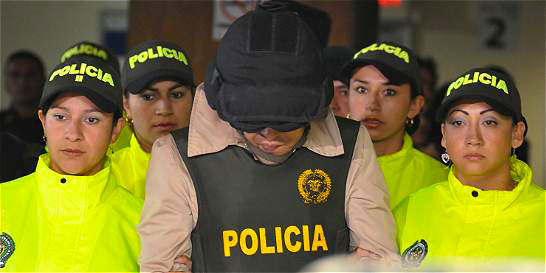Confused about the upcoming election? We’re here to help you with a set of cheat sheets on each candidate so you can follow the local news. Put on a coffee, this one’s long. Gustavo Petro, Colombia’s most divisive political figure since you-know-who.

Who is Gustavo Petro then?
Gustavo Petro, former Bogotá mayor (2012-15), ex-guerilla, senator and perennial presidential candidate. It’s fair to say he’s seen Colombian politics from a lot of different positions. He has a reputation as a man of the people and he’s possibly the most successful left-wing politician Colombia has ever seen. For that same reason, he’s also one of the most divisive figures in Colombia, inspiring both fervent support while also drawing intense criticism.
READ MORE: Your Guide to the 2022 Colombian elections
Is he polling well?
He’s rock-solid in first place for the first round. He’s not polling well enough for a first-round victory, but the fact we’re even discussing it tells you how far ahead he is. His problem lies elsewhere: He needs to pick up votes in the second round. Last time, he didn’t gain enough to beat Duque after a taking comfortable first-round victory. Polls – which it should be said aren’t always reliable – currently have him at 40% or even higher of the vote share.
What’s his campaign like?
He’s positioned as the candidate for change. And he’s effective. He dominates social media, has flooded all platforms and the debate is centred on him. His real calling card, though, is speaking directly to large crowds. He’s been on tour around Colombia, eschewing the big cities. Notably, his vice-president, Francia Márquez is also popular and this is much more of a team effort than the other campaigns.
And what’s in his manifesto?
Yet another 50 page document. It’s noticeably less clear and precise than the others. There’s vague language in all of them, but this one doesn’t have concrete targets, preferring to focus on holistic ideas. You could see this as a positive, that he’s more focused on systems and processes than raw numbers. Most, though, will see it as unclear and vague. Apologies in advance for a lack of following details.
Peace is a clear platform for Petro – both fully implementing the existing agreement with the FARC and working towards a peace with the ELN. The JEP (Colombia’s Special Jurisdiction for Peace) will receive full state support and programs for ex-combatants will be fortified and extended. The JEP is the mechanism by which transitional justice is being delivered.
He plans to negotiate with drug traffickers to achieve a peaceful disarmament. He aims to go after financing and structure rather than low-level dealers and growers. That said, he also promises a comprehensive program of coca substitution and basic income for rural populations – without any forced fumigation or prosecution. It’s about a commitment to help farmers find other ways to use land. Some cannabis production to be legalised for export.
He will guarantee the rights of Colombians imprisoned abroad. A reform of both the Procuraduría and Contraloría are promised. Jails will no longer be places of punishment, but of resocialisation. In general, restorative justice will be prioritised. Police to do only policework, no administration or bodyguarding for important individuals. The controversial ESMAD, Colombia’s riot police, to be disbanded. Better protection for social leaders. The armed forces will all have the right to further education.
Petro promises that all Colombians will have access to the internet. Where installing fiber-optic cables would be difficult, he plans to use low-orbit satellites. On gender equality, there’s a detail: minimum 50% women in all levels and all branches of power, as well as a Ministry of Equality to ensure gender balance. Local government will have the power to introduce congestion charges to promote public transport, cycling and walking. A single health system, publically funded and preventative. Education to get a massive budget boost, improving all areas, from SENA to universities. ICETEX to focus on international scholarships.
To finance all this, he promises to levy a wealth tax on the 4,000 richest Colombians. It’s not clear how these people would be identified or whether foreign investments and savings would be counted. Tax reform to eliminate exceptions and to work towards a progressive tax system. Dividends will be taxed. Tax evasion to be punished heavily and those receiving state resources will be prohibited from using tax havens. International trade to favour neighbouring countries over trading partners further away. Existing pensions will be protected, but a half a minimum salary will go to all those currently without pensions.
Who is he running with?
Francia Márquez – or Francia Elena Márquez Mina to give her full name. She’s a renowned social leader now turning her considerable personality towards politics. She’s most famous for winning the Goldman Prize in 2018, viewed as a Nobel for environmental activism. She’s endured plenty of death threats and attempts on her life, including a 2019 attack that left two injured. She was forced out of her birthplace in 2014 and faces constant danger. This hasn’t changed in the election campaign, with plenty of abuse coming her way, much of it misogynistic and/or racist. She draws plenty of supporters in her own right, and got nearly 800,000 votes in the March elections to define the candidates.
READ MORE: Interview with Francia Márquez
As a communist, will he expropriate my house for the common good?
Simply put, no. First, he’s not a communist and secondly, he’s gone as far as signing a notarised document promising not to expropriate private property. However, he himself has muddied the waters a little here. He says he is worried about unproductive land, and some fear this will be expropriation under a different name. Particularly, his ally Gustavo Bolívar has mentioned ‘democratising’ some 15 million hectares he claims have no plants, no livestock, nothing.
My friend says he was a guerilla. Surely that’s not true?
It is. It’s also a little misleading, he was an administrator rather than a fighter or direct terrorist. However, it is true that he espoused violent means in the past. Many voters can’t or won’t forgive him for that and it’s unquestionably the biggest hurdle he needs to overcome. He’s also supported by a lot of former guerillas. He absolutely is the Comunes candidate, and that doesn’t sit well with many.
Will he prosecute former guerilla members?
This is complicated, with more unclear language. He’s floated the idea of perdón social, but avoided clarifying exactly what that might mean in practice. By not clearing things up, he’s adding fuel to the fire for those who worry that he will use it as a mechanism to guarantee political impunity for his allies.
I saw a video with thousands in a plaza, surely he’ll win!
He does draw enormous crowds at those countrywide rallies, but that doesn’t mean he’s certain to win. His supporters are fanatical and passionate, no doubt, and his name was widely chanted at the protests of the last few years. National elections, however, are won by attracting moderate voters too. That’s where Petro has struggled in the past. This time around he has a larger base, but he’ll still need some of the centre to come to him.
What’s all this about making Colombia into a new Venezuela?
That’s the fear that anti-Petristas have. This has been a trope that’s been repeated for years now in Colombia – that leftwing politicians will destroy the economy in a similar manner to the Venezuelan collapse. There’s an oft-repeated story about the Foro de Sao Paolo, a supposed plot to deliver all of Latin America to a communist New World Order. It doesn’t stand up to scrutiny, but it gets shared a lot on WhatsApp.
Any other skeletons in his closet?
Depending on who you talk to, yes and no. Basically everything he does, has done or will do is wrong for some people, so crack open a bottle of whisky and settle in if you want to hear it all. For those of us less concerned about his choice of footwear or holidays to Eurodisney, there are still a few things. There are people in his coalition who corruption allegations against them – Gustavo Bolívar and Piedad Córdoba for example. He seems to have a habit on not finishing his studies – his specializations, a master’s and a doctorate are all missing one or two components and therefore have not been completed.
There were the farcical scenes over rubbish collections when he was mayor and temporarily unseated. That was found to be unconstitutional, but it’s also true that his plan to make rubbish collection public met fierce opposition from entrenched powers. That doesn’t augur well for an ambitious national manifesto. For years, Petro and Peñalosa supporters have clashed over exactly what was achieved in his time as Bogotá mayor, with the latter accusing him of not delivering on very much.
So, can he succeed?
Yes, undoubtedly. He even has a chance to do so in the first round, although it’s relatively unlikely. He won’t necessarily attract a lot of voters in the second round though, and there might be an increase in turnout if he looks on course to win. If he gets less than 40% vote share in the first round, he may well be in trouble. Still, he remains in pole position, and the most likely winner. This election is almost a referendum on Petro – are you for him or against him?




